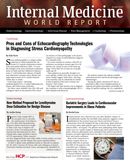Bariatric Surgery Leads to Cardiovascular Improvements in Obese Patients
In morbidly obese but otherwise morbidly obese patients who had bariatric surgery, cardiovascular, and metabolic improvements were noted after 12 months.

Improvements were observed one year after bariatric surgery in metabolically healthy but morbidly obese patients, suggests a study published in the journal Surgery for Obesity and Related Diseases.
Researchers from the Hospital del Mar in Barcelona, Spain observed 222 severely obese adult patients aged 18-55 years, whose body mass indexes (BMI) > 40 mg/m2. The patients were undergoing either laparoscopic roux-en-Y gastric bypass or laparoscopic sleeve gastrectomy surgeries. However, participants were excluded if they had elevated blood pressure, elevated triglyceride level, low HDL-C level, elevated glucose level, and insulin resistance.
Most of the researchers in bariatric surgery focus on morbid (BMI>40) or premorbid (BMI 35-39) patients with comorbid type 2 diabetes, hypertension, or dislipidemia, Alberto Goday, TK, explained to Internal Medicine World Report in an email. However, not all morbid obese patients have these comorbid diseases; therefore, he believes, these patients should not be ignored just because they do not have these associated diseases.
Patients were split into 2 groups: 42 patients (18.9%) were metabolically healthy but morbidly obese (MHMO) — categorized by a low cardiometabolic risk – and metabolically unhealthy morbidly obese (MUMO). All patients were evaluated at preoperatively and at 3, 6, and 12 months postoperatively by the same surgeon, endocrinologist, and nutritionist team.
Typically, the researchers found that MHMO patients were younger and female, though no major differences were found among collection data (BMI, waist and hip circumference, total and LDL-C) between MUMO and MHMO groups. MUMO patients demonstrated a more marked response after bariatric surgery in terms of reduction of glucose, HbA1c, HOMA, triglycerides, and an increase of HDL cholesterol.
Of the 34 MHMO patients with only one metabolic abnormality at baseline, 17 still had a cardiovascular risk factor after bariatric surgery. HbA1c levels improved in MUMO patients, as well as their metabolic parameters.
After bariatric surgery, MHMO patients showed statistically significant improvements in blood pressure, glucose and lipid levels, even though they were “normal” during the preoperative data collection.
“The most surprising finding was that in morbid obese patients without diabetes, hypertension, dyslipidemia, all the quantitative parameters related to cardiovascular risk decreased, that is, improved,” Goday continued. “And these results are important because if you had your blood sugar in 87 mg/dl, your cardiovascular risk is lower than another people with blood sugar in 96 mg/dl, being all both normal blood glucose levels — the same for cholesterol, blood pressure, and triglycerides.”
In a recent study cited by the authors, only modest benefits were demonstrated among healthy, but obese individuals after lifestyle-induced weight loss. However, only a few longitudinal studies have evaluated metabolic responses to weight loss.
The major takeaway for physicians, Goday explained, is “healthy” morbid obese patients — those with morbid obesity but who lack diabetes, hypertension, dyslipidemia – can improve their cardiovascular risk after surgery. They also receive important improvements in their cardiovascular status, as the report shows.
